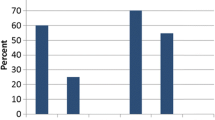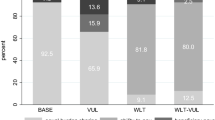Abstract
It is generally agreed that the risk of catastrophic climate change can only be reduced if agents cooperate to reduce greenhouse gas emissions over the course of the 21st Century. Previous economic experiments have suggested that sufficient cooperation can often be achieved providing individuals are adequately and convincingly informed of the consequences of their actions and the stakes involved. However, this previous work, has not allowed for the fact that in the real world agents vary in both: (1) their resources to mitigate climate change, and (2) the consequences that they face from climate change. We develop and expand the protocol of previous economic experiments to investigate the introduction of such combined asymmetries. We find that when inequality in resources is combined with a greater relative risk for poorer members, cooperation collapses, with tragic consequences. This is because the rich invest proportionally less into preventing climate change when they are less at risk. We also find, through the use of a post-game questionnaire, that those individuals who were more skeptical about climate change in the real world cooperated less in our games. Insofar as such experiments can be trusted as a guide to either people’s everyday behaviour or the interactions of nation states, these results suggest that voluntary cooperation to avoid climate catastrophe in the real world is likely to be hard to achieve.




Similar content being viewed by others
References
Allison ST, Messick DM (1990) Social decision heuristics in the use of shared resources. J Behav Decis Mak 3:195–204
Allison ST, Mcqueen LR, Schaerfl LM (1992) Social decision-making processes and the equal partitionment of shared resources. J Exp Soc Psychol 28:23–42
Archetti M (2009) Cooperation as a volunteer’s dilemma and the strategy of conflict in public goods games. J Evol Biol 22:2192–2200
Bergmuller R, Johnstone RA, Russell AF, Bshary R (2007) Integrating cooperative breeding into theoretical concepts of cooperation. Behav Process 76:61–72
Buchan NR, Grimalda G, Wilson R, Brewer M, Fatas E, Foddy M (2009) Globalization and human cooperation. Proc Natl Acad Sci U S A 106:4138–4142
Charness G, Sutter M (2012) Groups make better self-interested decisions. J Econ Perspect 26:157–176
Croson R, Marks M (2000) Step returns in threshold public goods: a meta- and experimental analysis. Exp Econ 2:239–259
Diekmann A (1985) Volunteers dilemma. J Confl Resolut 29:605–610
Diekmann A (1993) Cooperation in an asymmetric volunteers dilemma game—theory and experimental-evidence. Int J Game Theory 22:75–85
Dutta PK, Radner R (2004) Self-enforcing climate-change treaties. Proc Natl Acad Sci U S A 101:5174–5179
Dutta PK, Radner R (2009) A strategic analysis of global warming: theory and some numbers. J Econ Behav Organ 71:187–209
Eek D, Biel A, Garling T (2001) Cooperation in asymmetric social dilemmas when equality is perceived as unfair. J Appl Soc Psychol 31:649–666
Eyckmans J, Tulkens H (2003) Simulating coalitionally stable burden sharing agreements for the climate change problem. Resour Energy Econ 25:299–327
Frank SA (2003) Repression of competition and the evolution of cooperation. Evolution 57:693–705
Hardin G (1968) The tragedy of the commons. Science 162:1243–1248
Hofmeyr A, Burns J, Visser M (2007) Income inequality, reciprocity and public good provision: an experimental analysis. S Afr J Econ 75:508–520
Hurlbert SH (1984) Pseudoreplication and the design of ecological field experiments. Ecol Monogr 54:187–211
Kimmerle J, Cress U (2008) Endowment heterogeneity and identifiability in the information-exchange dilemma. Comput Hum Behav 24:862–874
King DA (2004) Environment - climate change science: adapt, mitigate, or ignore? Science 303:176–177
Maynard Smith J, Harper D (2003) Animal signals. Oxford University Press, Oxford
Mendelsohn R, Morrison W, Schlesinger ME, Andronova NG (2000) Country-specific market impacts of climate change. Clim Chang 45:553–569
Metz B, Intergovernmental Panel on Climate Change. Working Group III (2007) Climate change 2007: mitigation of climate change. Published for the Intergovernmental Panel on Climate Change by Cambridge University Press, Cambridge
Milinski M, Semmann D, Krambeck HJ, Marotzke J (2006) Stabilizing the Earth’s climate is not a losing game: supporting evidence from public goods experiments. Proc Natl Acad Sci U S A 103:3994–3998
Milinski M, Sommerfeld RD, Krambeck HJ, Reed FA, Marotzke J (2008) The collective-risk social dilemma and the prevention of simulated dangerous climate change. Proc Natl Acad Sci U S A 105:2291–2294
Milinski M, Rohl T, Marotzke J (2011) Cooperative interaction of rich and poor can be catalyzed by intermediate climate targets A letter. Clim Chang 109:807–814
Nash JF (1950) Equilibrium points in N-person games. Proc Natl Acad Sci U S A 36:48–49
Nordhaus WD, Yang ZL (1996) A regional dynamic general-equilibrium model of alternative climate-change strategies. Am Econ Rev 86:741–765
Nowak MA, Dreber A (2008) Gambling for global goods. Proc Natl Acad Sci U S A 105:2261–2262
Olson M (1965) The logic of collective action: public goods and the theory of groups. Harvard Univ. Press, Cambridge
Parry ML, Intergovernmental Panel on Climate Change. Working Group II (2007) Climate change 2007: impacts, adaptation and vulnerability. Published for the Intergovernmental Panel on Climate Change by Cambridge University Press, Cambridge
Raihani N, Aitken D (2011) Uncertainty, rationality and cooperation in the context of climate change. Clim Chang 108:47–55
Ratnieks FLW, Foster KR, Wenseleers T (2006) Conflict resolution in insect societies. Annu Rev Entomol 51:581–608
Sachs JL, Mueller UG, Wilcox TP, Bull JJ (2004) The evolution of cooperation. Q Rev Biol 79:135–160
Schelling TC (1960) The strategy of conflict. Harvard University Press, Cambridge
Solomon S, Intergovernmental Panel on Climate Change. Working Group I (2007) Climate change 2007: the physical science basis. Published for the Intergovernmental Panel on Climate Change by Cambridge University Press, Cambridge, UK; New York
Stern NH (2007) The economics of climate change: the Stern review. Cambridge University Press, Cambridge
Stott PA, Gillett NP, Hegerl GC, Karoly DJ, Stone DA, Zhang X, Zwiers F (2010) Detection and attribution of climate change: a regional perspective. Wiley Interdiscip Rev Clim Chang 1:192–211
Tavoni A, Dannenberg A, Kallis G, Loschel A (2011) Inequality, communication, and the avoidance of disastrous climate change in a public goods game. Proc Natl Acad Sci U S A 108:11825–11829
Thompson L, Loewenstein G (1992) Egocentric interpretations of fairness and interpersonal conflict. Organ Behav Hum Decis Process 51:176–197
Tol RSJ (2002a) Estimates of the damage costs of climate change—Part II. Dynamic estimates. Environ Resour Econ 21:135–160
Tol RSJ (2002b) Estimates of the damage costs of climate change. Part 1: benchmark estimates. Environ Resour Econ 21:47–73
Turner A, Kennedy D, Fankhauser S, Grubb M, Hoskins B, King J, Krebs J, May R, Skea J (2010) UK climate change committee. The fourth carbon budget: reducing emissions through the 2020s. www.theccc.org.uk
Van Dijk E, Wilke H (1995) Coordination rules in asymmetric social dilemmas—a comparison between public good dilemmas and resource dilemmas. J Exp Soc Psychol 31:1–27
Wade-Benzoni KA, Tenbrunsel AE, Bazerman MH (1996) Egocentric interpretations of fairness in asymmetric, environmental social dilemmas: explaining harvesting behavior and the role of communication. Organ Behav Hum Decis Process 67:111–126
West SA, Griffin AS, Gardner A (2007) Evolutionary explanations for cooperation. Curr Biol 17:R661–R672
Acknowledgments
We thank: L. Miller from the Nuffield Centre for Experimental Social Sciences for hosting our experiments and recruiting our participants; AS Griffin, CK Cornwallis & TC Scott-Phillips for comments; the European Research Council for funding.
Author information
Authors and Affiliations
Corresponding author
Electronic supplementary material
Below is the link to the electronic supplementary material.
Online Resource 1
(PDF 1165 kb)
Online Resource 2
(PDF 1702 kb)
Rights and permissions
About this article
Cite this article
Burton-Chellew, M.N., May, R.M. & West, S.A. Combined inequality in wealth and risk leads to disaster in the climate change game. Climatic Change 120, 815–830 (2013). https://doi.org/10.1007/s10584-013-0856-7
Received:
Accepted:
Published:
Issue Date:
DOI: https://doi.org/10.1007/s10584-013-0856-7




